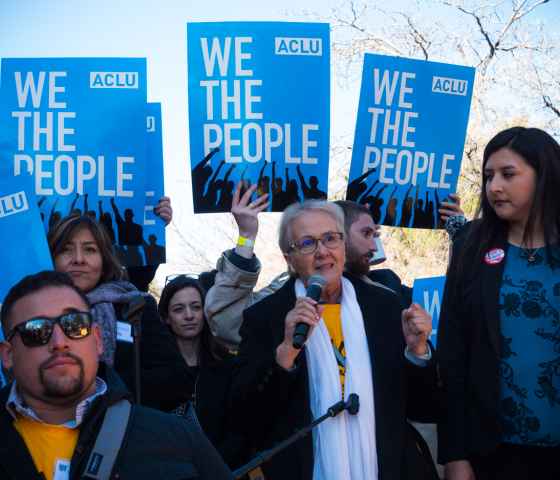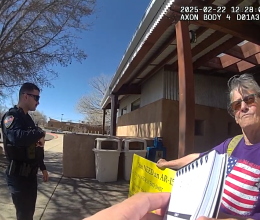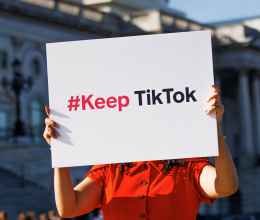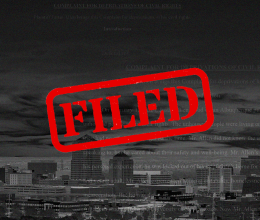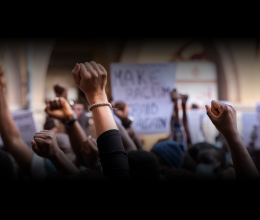By: Dr. Kee J.E. Straits, PhD
Dr. Straits is a bilingual licensed psychologist who holds a PhD in Counseling, School, and Clinical Psychology. She is Native American (Quechua) and Latina.
This piece does not disclose names in the interest of protecting individuals’ privacy.
I hope to break the culture of silence surrounding racism at Bosque School, a private middle and high school in Albuquerque, to create a space for healing for students, educators, and parents. My intent is not to vilify, harm, or malign the school. Rather, I want to see Bosque School become a high-quality place of learning where every single student, regardless of identity, is embraced, valued, and honored. A place where families can send their children to learn not just from textbooks but from being in community with a diverse student and staff population from multitudes of backgrounds.
As I tried to address the concerns raised in that letter and other problems, I uncovered a toxic environment leading to staff departures and student unrest.
In 2021, I was elated to be hired as the School’s Director of Equity, Community, and Culture (Bosque School’s version of diversity, equity, and inclusion, otherwise known as DEI). As the first Indigenous and Spanish-speaking DEI director, I knew that my background, education, and expertise would have a meaningful impact on this New Mexico-serving school.
I was aware that Bosque School struggled with turnover of both students and faculty of color and was eager to explore the reasons for this and reverse that pattern. However, my attempts to foster inclusivity for students and faculty were quickly met with resistance from the administration. During my first trimester, a former student submitted an open letter about experiences of racism on campus. As I tried to address the concerns raised in that letter and other problems, I uncovered a toxic environment leading to staff departures and student unrest.
The toxic environment was shaped by individual actions by both leadership and institutional policies. For example, in a blatant misuse of instructional time, a White educator used two class periods to verbally demean an educator of color, making gross derogatory statements about their racial group. Students were forced to witness the rant. I later learned that this educator of color and their family had already experienced repeated racial targeting on campus. Despite reports, calls, and letters from students, parents, and staff, and despite my attempts to address the situation, there were no visible consequences for the teacher. Instead, I saw firsthand how Bosque School’s culture of silence works and its tendency to sweep instances of racial harm under the rug.
Bosque School leaders actively undermined my attempts to do my job and retaliated against me when I tried. It was no coincidence that when I began to use my skills and expertise to address the discrimination I was witnessing, I was promptly brought into meetings with leadership to discuss my performance. I was incapacitated by overbearing supervision that found fault in every detail of my work. I was berated and belittled in front of my peers. One individual directly accused me of being the “destructive force” in the school.
I left my position because retaliatory actions rendered me and my work ineffective at protecting students from harm. The culture of silence was also making me complicit in furthering harm to students. My heart was with Bosque School students and families. Rather than compromise my professional ethics, I resigned and ended up pursuing a Human Rights Act claim against the school with the help of the American Civil Liberties of New Mexico.
Bosque School is not unique in its actions. Discrimination and systemic racism exist across New Mexico educational institutions...
The Human Rights Bureau ultimately issued a finding of probable cause. After investigating my claim of retaliation, the Bureau determined that there was enough evidence to show that the law may have been broken. Despite this, I opted not to pursue my claims within the Human Rights Bureau nor file a lawsuit because I am not interested in money. I am interested in true accountability and healing, neither of which could be obtained through a lawsuit.
Bosque School is not unique in its actions. Discrimination and systemic racism exist across New Mexico educational institutions, as evidenced by a teacher at Cibola High School in Albuquerque cutting a Native American student’s hair without her permission; rampant racial harassment of African American students at Volcano Vista High School in Albuquerque; and the recent forcing of a Native American high school graduate in Farmington to remove her graduation cap because she added tribal regalia to it. Indeed, U.S. education systems are founded on histories of intentional harm to Black, Brown, and Indigenous children.
Racism creates toxic learning environments, fear, and trauma that perpetuate educational disparities for students of color and lead to adverse behavioral health outcomes. Addressing enduring educational disparities in New Mexico means that students of color must have access to educators of color with deep ties to local cultural communities who are not just recruited but retained long-term. Private schools have greater resources and flexibility that one would assume leads to innovative leadership to address educational disparities, yet they tend to use their freedom to embrace stagnation.
The wider community has a right to know about both explicit and systemic racism, whether it be in our schools (public and private), in our government, in our healthcare system, or in other institutions that exist to serve our communities. This is a crucial means of holding these institutions accountable. Bosque School excels at writing beautifully worded promises on its website, hosting DEI trainings, and capturing snapshots of diversity (e.g., placing my picture prominently on its website to showcase a diversity hire). However, the school is actively interrupting and subverting actions that would lead to meaningful systemic changes.
The wider community has a right to know about both explicit and systemic racism...
During my time there and preceding it, Bosque School missed key opportunities to pointedly address racism within its walls. It missed out on acknowledging the harmful experiences of students of color and opportunities for truthful, open, and restorative conversations in the Bosque community about incidents that took place there. It missed out on harnessing the power of all those community voices that stepped forward to lead and provide solutions.
The school still has the opportunity to make good on the commitments it espouses on its website – to be “an inclusive community where all students, families, and staff feel seen, heard, known, and valued for their equally essential role in creating a healthy and caring collective.” To that end, a public acknowledgment of and apology for racial harm inflicted on students and faculty would be a good start in addition to reparative actions for those harms. Additionally, rather than silencing educators of color, the school could invest in their voices as equal collaborators.
My motto while working at Bosque School was “Fear Less, Love More” because fear feeds inequity. By breaking through the silence, we conquer fear itself. We create space for restorative justice and community healing. It is my greatest act of love…for Bosque School, for all students, teachers, and families in schools across New Mexico…to bring these stories to light.
